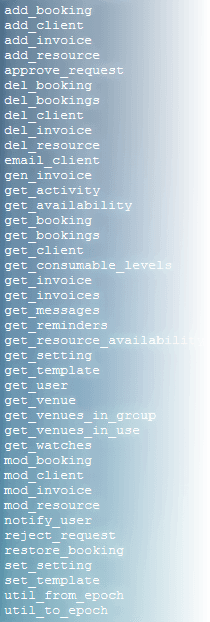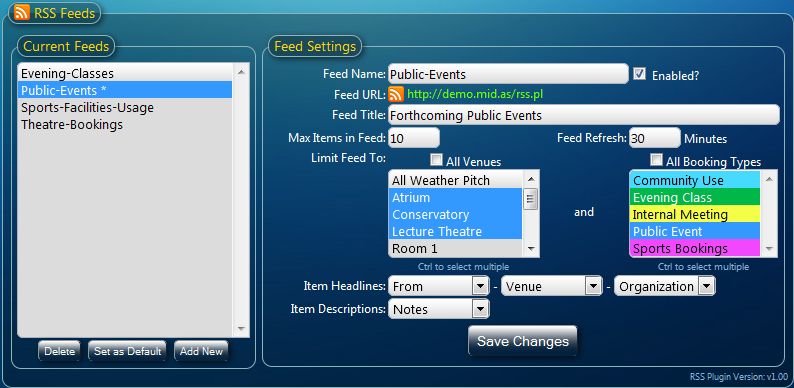The MIDAS API allows developers to interface with a MIDAS booking system from their own code, applications, or websites.
This powerful addon is available as an option for both cloud-hosted and self-hosted MIDAS systems for an additional cost.
To help ensure maximum quality of service for all our cloud hosted customers, we will shortly be implementing a “Fair Usage” policy for API calls.
To clarify; this will only affect cloud-hosted customers using the optional MIDAS API. This does not affect self-hosted customers using the MIDAS API, and it does not affect non-API users.
Why the need for a “Fair Usage” API policy?
We recently became aware of a customer who was retrieving over 1GB of data each day from their cloud-hosted MIDAS system via automated API calls. On some days this would exceed over 1.5GB/day.
Now, we should stress that this customer was not acting maliciously in any way. They were not making an excessively high volume or frequency of API calls, but the calls that were being made were returning extremely large data sets every 10 minutes.
As a business, we obviously have to pay for our bandwidth (the amount of data transferred between our servers and customers), and so a customer pulling over 1GB of data from our servers everyday via the API becomes costly.
Therefore, going forward, we’ve decided to implement a “Fair Usage” policy on API calls made to cloud-hosted MIDAS systems.
What is the “Fair Usage” API policy?
The Fair Usage policy sets limits on the number of API calls that can be made in any given hour, and the amount of data that may be retrieved in any given 24 hour period.
Initially, these limits will be as follows *:
- A maximum of 720 API calls per hour
- A maximum of 480 MB of data per day
We believe API limits for cloud-hosted customers are generous, and from our analysis will not impact the vast majority of cloud-hosted API users.
* We reserve the right to review and amend these limits in the future. The current limits may always be found here.
What happens if I exceed these API limits?
Most API users will not be impacted by this change. However, should you exceed these limits, API access to your MIDAS system will be temporarily suspended, with subsequent API calls returning an error. API access will be automatically re-instated once API usage falls below these limits again.
We’ve also provided useful advice on how you can reduce API usage by optimizing your API calls.
Can I monitor my API usage?
It would be unfair of us to introduce a “Fair Usage” policy without providing a way for customers to monitor their API usage.
As such, we’ve just released an updated API (v2.48) in which you can view your current API usage via MIDAS Admin Options → Manage Addons → API Access.

API usage may also be monitored directly through the API itself via a new “util_api_usage” call.
When will this policy come into effect?
Cloud-hosted API users can now monitor their current API usage as outlined above.
We’re allowing a grace period before we implement our new API “fair usage” policy.
The “Fair Usage” policy will start being enforced from Monday 13th September 2021.
Can I opt-out of the “Fair Usage” policy?
Our API “Fair Usage” policy (which only applies to cloud-hosted customers) cannot be opted out of.
However, if you find that you regularly exceed the new API limits and are unable to refactor your code to reduce the frequency of API requests and/or the amount of data returned by your API calls, then please contact us to discuss increasing your API limits.
Alternatively, you could consider migrating to a self-hosted MIDAS system. API calls to self-hosted MIDAS systems do not have any usage limits imposed.
We thank you for your understanding and co-operation in helping us to ensure quality of service for all our cloud-hosted customers.
Should you have any questions or concerns, please don’t hesitate to reach out to us, and we’ll be happy to help!


 The
The 
 The “API Access” addon will allow developers to interface directly with MIDAS from their own software applications! You can
The “API Access” addon will allow developers to interface directly with MIDAS from their own software applications! You can 